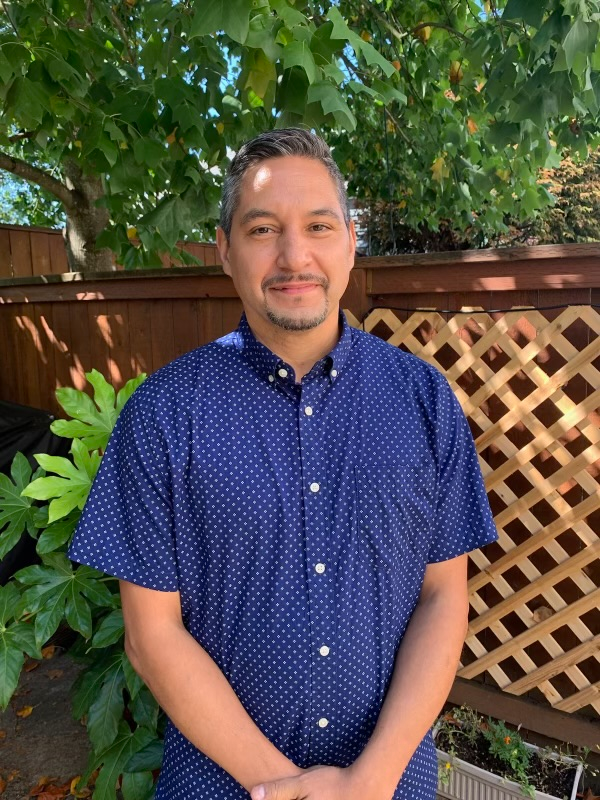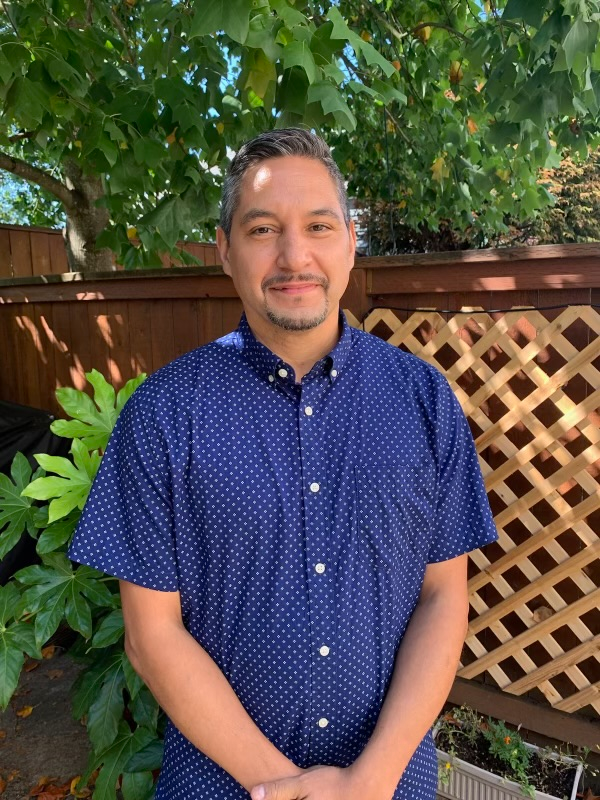
You may know Dominic Paz as the DJ of prom, but his DJ skills are not the only talents he brings to the Franklin community. This spring Paz became Franklin’s newest track and field coach for the long jump, triple jump, and high jump events.
Paz began coaching as young as high school and coached even more once he had kids. “I read all I could about soccer and how to teach it,” he says. Paz continued to expand his knowledge by taking coaching courses online, reading books, and listening to other coaches. “I was bound to be a coach,” says Paz, who recently coached the Franklin youth boys basketball team for the fourth season in a row.
Paz has loved sports ever since he was a kid, participating in football, cross country, basketball, volleyball, track and field, and tennis. Early experiences with positive coaching were the catalyst that made him want to be a coach. Coaches he had as a kid prioritized kindness, and emphasized having fun while learning. Additionally, his coaches provided an example of men who were not hyper masculine “at a time when that wasn’t really respected” he explains; instead his coaches encouraged the kids to “laugh at everything that happened on the field, good and bad.” Paz’s formative experiences with coaches demonstrate the positive impacts of having role models in coaching positions. A good coach can lead athletes to find new ways of experiencing athletics and can “support a different way of living” that extends beyond just the sport. Paz says that he was able to learn a lot from those coaches and it pushed him to “look for [an] opportunity to be that [kind of figure] in [his] own community.”
Paz’s job as Implementation Manager at Oregon State University overlaps with his role as a coach. He works with a team of people who develop practices supporting early childhood educators through an anti racist, anti bias, and inclusive lens. “It’s everything I’ve learned about how to communicate and connect with people,” he explains. In both spaces, Paz facilitates growth in various communities. “Being a person of color in a coaching position, I feel is one of the ways I can positively give back to the world,” says Paz, who has found ways to personally contribute and to model “the kind of world that [he] want[s] to live in.”
While he is coaching, Paz actively thinks about how to support each kid in meeting their goals. Every kid learns and develops differently, and he is aware of both the individuality of athletes but also the general needs of kids in development. “I try to figure out the best way to communicate and connect about improving skills,” says Paz. Most youth who have spent time in the world of athletics have encountered people who can’t seem to communicate well with kids. However, Paz tries to meet kids where they are at, and to listen.
Paz envisions a sports world where athletics can be a place to learn lessons that extend into the real world. He emphasizes the role sports can play in people’s lives when they become a place of mentorship, social connection, health and fitness, and a space that brings the best out of people.


































